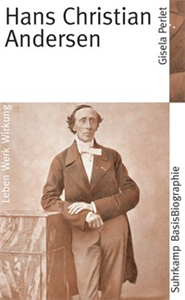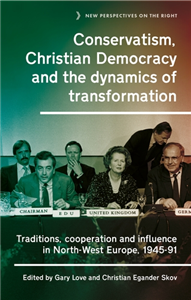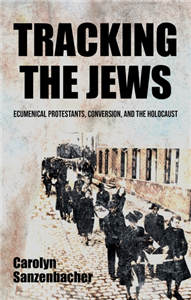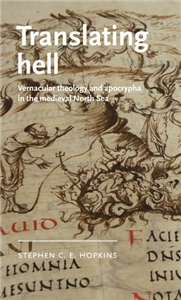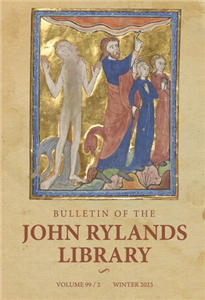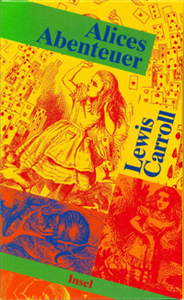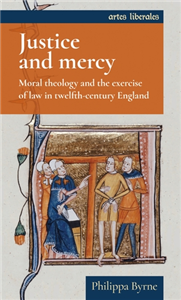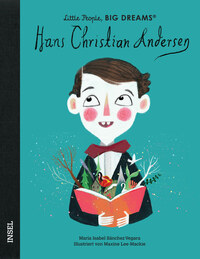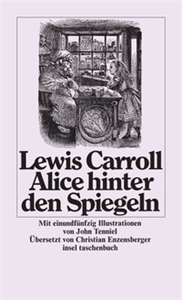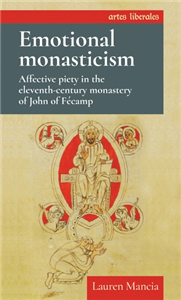Your Search Results
-
Promoted Content2025
Why Be a Christian Today?
by Elisabeth Zoll / Thomas Seiterich (eds.)
The exciting texts and reports by professing Christians offer a fresh perspective for all those who have cultivated a Christian spirituality for many years. However, the book also provides easy access for those who are newly interested in the Christian faith. There are probably as many professions of Christian faith as there are believers in the world. But what do Christians think and how have they been moulded? Elisabeth Zoll and Thomas Seiterich have compiled very personal ideas about the Christian faith in this book. When selecting the contributors, the editors deliberately chose not to include people with church offices or specialised theologians. Irrespective of church policy issues and church scandals, the contributors have provided insights into their path to faith.
-
Promoted ContentMarch 2005
Hans Christian Andersen
by Gisela Perlet
Der Werdegang Hans Christian Andersens vom armen Schustersohn zum erfolgreichen Schriftsteller mutet wie ein Märchen an. Allerdings bemühte er sich auch nach Kräften, diesen Mythos zu pflegen. Andersens Figuren traten schon zu seinen Lebzeiten ihren Siegeszug durch die Welt an und sind bis heute unvergessen.
-
 Trusted Partner
Humanities & Social SciencesJanuary 2013
Trusted Partner
Humanities & Social SciencesJanuary 2013Christian Dualist Heresies in the Byzantine World, c. 650-c. 1450
by Janet Hamilton, Bernard Hamilton
Christian dualism originated in the reign of Constans II (641-68). It was a popular religion, which shared with orthodoxy an acceptance of scriptual authority and apostolic tradition and held a sacramental doctrine of salvation, but understood all these in a radically different way to the Orthodox Church. One of the differences was the strong part demonology played in the belief system. This text traces, through original sources, the origins of dualist Christianity throughout the Byzantine Empire, focusing on the Paulician movement in Armenia and Bogomilism in Bulgaria. It presents not only the theological texts, but puts the movements into their social and political context.
-
 Trusted Partner
November 2010
Trusted Partner
November 2010Lebenslust mit Christian Morgenstern
by Christian Morgenstern, Thomas Kluge
Christian Morgenstern wurde am 6. Mai 1871 in München geboren. 1892/93 begann er ein Studium der Rechtswissenschaften an der Universität Breslau, das er bald abbrach. Er zog nach Berlin und war dort als Journalist, Kultur- und Literaturkritiker und Redakteur tätig und veröffentlichte zahlreiche Beiträge und Glossen in Zeitschriften. Sein erster von seinen insgesamt vierzehn Lyrik-Bänden In Phantas Schloß erschien 1895. In der Folgezeit beschäftigte er sich mit der Übersetzung und Herausgabe der Werke von August Strindberg und Henrik Ibsen und schrieb für Max Reinhardts Berliner Kabarett »Schall und Rauch«. Von 1903 bis 1905 war er Redakteur der Zeitschrift »Das Theater« im Verlag von Bruno Cassirer, für den er auch als freier Lektor arbeitete. 1909 schloß sich Morgenstern dem Kreis der antroposophischen Gesellschaft um Rudolf Steiner an. Am 31. März 1914 starb er in Meran / Italien an den Folgen einer Tuberkulose-Erkrankung.
-
 Trusted Partner
Humanities & Social SciencesJuly 2025
Trusted Partner
Humanities & Social SciencesJuly 2025Conservatism, Christian Democracy and the dynamics of transformation
Traditions, cooperation and influence in North-West Europe, 1945-91
by Gary Love, Christian Egander Skov
Conservatism, Christian Democracy, and the Dynamics of Transformation compares the centre-right political traditions of Britain, the Nordic countries, France, West Germany, and Austria and looks for evidence of political cooperation and influence across borders during the period 1945-90. The book explores howa variety of intellectuals, politicians, and political parties transformed their politics in response to major economic, social, and political challenges and seeks to explain why conservatives and Christian democrats came to feel that they belonged to a wider centre-right political family by the end of this period. It also examines why these political traditions found it difficult to cooperate with each other after the Second World War and why they decided to invest more political capital in inter-party relations and wider transnational projects from the 1960s. As the book shows, these developments resulted in two new centre-right internationals: the European Democrat Union and the International Democrat Union.
-
 Trusted Partner
Humanities & Social SciencesJanuary 2013
Trusted Partner
Humanities & Social SciencesJanuary 2013The Jews in western Europe, 1400–1600
by John Edwards
As European politics, society, economy and religion underwent epoch-making changes between 1400 and 1600, the treatment of Europe's Jews by the non-Jewish majority was, then as in later periods, a symptom of social problems and tensions in the Continent as a whole. Through a broad-ranging collection of documents, John Edwards sets out to present a vivid picture of the Jewish presence in European life during this vital and turbulent period. Subjects covered include the Jews' own economic presence and culture, social relations between Jews and Christians, the policies and actions of Christian authorities in Church and State. He also draws upon original source material to convey ordinary people's prejudices about Jews, including myths about Jewish 'devilishness', money-grabbing, and 'ritual murder' of Christian children. Full introductory and explanatory material makes accessible the historical context of the subject and highlights the insights offered by the documents as well as the pitfalls to be avoided in this area of historical enquiry. This volume aims to provide a coherent working collection of texts for lecturers, teachers and students who wish to understand the experience of Jewish Europeans in this period.
-
 Trusted Partner
Humanities & Social SciencesApril 2024
Trusted Partner
Humanities & Social SciencesApril 2024Tracking the Jews
Ecumenical Protestants, conversion, and the Holocaust
by Carolyn Sanzenbacher
This book sheds light on an unprecedented Protestant conversion initiative for the global evangelisation of Jews. Founded in 1929, the International Committee on the Christian Approach to the Jews (ICCAJ) aimed to bring Jewish people to their 'spiritual destiny', a task it saw as both benevolent and essential for a harmonious society. By the time of Hitler's rise to power it was active in thirty-two countries, educating Protestant churches on the right Christian attitude towards Jews and antisemitism. Reconstructing the activities of the ICCAJ in the years before, during and immediately after the Holocaust, Tracking the Jews reveals how ideas disseminated through the organisation's discourse - 'Jewish problem', 'Jewish influence', 'Judaising threat', 'eternal Jew' - were used to rationalise, justify, explain or advance a number of deeply troubling policies. They were, for vastly different reasons, consciously used elements of argumentation in both Protestant conversionary discourse and Nazi antisemitic ideology.
-
 Trusted Partner
Literature & Literary StudiesMay 2026
Trusted Partner
Literature & Literary StudiesMay 2026Translating hell
Vernacular theology and apocrypha in the medieval North Sea
by Stephen C. E. Hopkins
In the Middle Ages, hell was useful because it was vaguely defined. Canonical scriptures scarcely mention hell, leaving much to the imaginations of early Christians, who used it to sort out who belonged within the faith. This book explores how hell became a place for literary experiments with local challenges in theology and identity. Following the reception and transformations of two popular hell apocrypha, it argues that they served as this role because of their liminal textual authority. As noncanonical scriptures, apocrypha afforded medieval writers space to revise their hells (since they were not actually scripture), while also encouraging readers to revere those experiments as valid (since they seemed like scripture). The book brings together adaptations from early medieval England, Iceland, Ireland, and Wales, placing the early vernacular theologies of the North Sea in comparative conversation.
-
 Trusted Partner
Literature & Literary StudiesDecember 2023
Trusted Partner
Literature & Literary StudiesDecember 2023Bulletin of the John Rylands Library 99/2
by Stephen Mossman, Cordelia Warr
The John Rylands Library houses one of the finest collections of rare books, manuscripts and archives in the world. The collections span five millennia and cover a wide range of subjects, including art and archaeology; economic, social, political, religious and military history; literature, drama and music; science and medicine; theology and philosophy; travel and exploration. For over a century, the Bulletin of the John Rylands Library has published research that complements the Library's special collections. The editors invite the submission of articles in these fields and welcome discussion of in-progress projects.
-
 Trusted Partner
Humanities & Social SciencesFebruary 2023
Trusted Partner
Humanities & Social SciencesFebruary 2023No masters but God
Portraits of anarcho-Judaism
by Hayyim Rothman
The forgotten legacy of religious Jewish anarchism, and the adventures and ideas of its key figures, finally comes to light in this book. Set in the decades surrounding both world wars, No masters but God identifies a loosely connected group of rabbis and traditionalist thinkers who explicitly appealed to anarchist ideas in articulating the meaning of the Torah, traditional practice, Jewish life and the mission of modern Jewry. Full of archival discoveries and first translations from Yiddish and Hebrew, it explores anarcho-Judaism in its variety through the works of Yaakov Meir Zalkind, Yitshak Nahman Steinberg, Yehudah Leyb Don-Yahiya, Avraham Yehudah Heyn, Natan Hofshi, Shmuel Alexandrov, Yehudah Ashlag and Aaron Shmuel Tamaret. With this ground-breaking account, Hayyim Rothman traces a complicated story about the modern entanglement of religion and anarchism, pacifism and Zionism, prophetic anti-authoritarianism and mystical antinomianism.
-
 Trusted Partner
December 1997
Trusted Partner
December 1997Alices Abenteuer
Erster Band: Alice im Wunderland. Zweiter Band: Alice hinter den Spiegeln
by Lewis Carroll, John Tenniel, Christian Enzensberger, Christian Enzensberger
»Noch zu seinen Lebzeiten sind die beiden Bücher zu einem ungeheuren Erfolg geworden. Sie lagen in den englischen Kinderzimmern wie in der Offiziersmesse in Kalkutta; sie wurden gelesen von Königin Viktoria wie von Oscar Wilde; sie werden heute im englischen Parlament ebenso selbstverständlich zitiert wie in der Reklameserie einer Elektrofirma; und ihr Lob steht in der Times nicht weniger zu lesen als in den Schriften der französischen Surrealisten Aragon und Breton.« Christian Enzensberger
-
 Trusted Partner
Humanities & Social SciencesJune 2021
Trusted Partner
Humanities & Social SciencesJune 2021Justice and mercy
Moral theology and the exercise of law in twelfth-century England
by Philippa Byrne
This book examines one of the most fundamental issues in twelfth-century English politics: justice. It demonstrates that during the foundational period for the common law, the question of judgement and judicial ethics was a topic of heated debate - a common problem with multiple different answers. How to be a judge, and how to judge well, was a concern shared by humble and high, keeping both kings and parish priests awake at night. Using theological texts, sermons, legal treatises and letter collections, the book explores how moralists attempted to provide guidance for uncertain judges. It argues that mercy was always the most difficult challenge for a judge, fitting uncomfortably within the law and of disputed value. Shining a new light on English legal history, Justice and mercy reveals the moral dilemmas created by the establishment of the common law.
-
 Trusted Partner
March 1999
Trusted Partner
March 1999Gnosis
Die Botschaft des fremden Gottes
by Hans Jonas, Christian Wiese, Christian Wiese
Hans Jonas (1903-1993) war Philosoph und wegweisender Theoretiker der internationalen Ökologiebewegung. Er floh 1933 vor den Nationalsozialisten und emigrierte, nach Stationen in Großbritannien und Israel, schießlich in die USA. Dort forschte und lehrte Jonas unter anderem an der renommierten New School for Social Research. Sein Werk wurde in 15 Sprachen übersetzt. Christian Wiese, geboren 1961, Studium der Ev. Theologie und Judaistik in Tübingen, Bonn, Jerusalem und Heidelberg, Promotion 1997 in Frankfurt a.M., Habilitation 2006 in Erfurt. 2007-2010 Professor für jüdische Geschichte und Direktor des Centre for German-Jewish Studies an der University of Sussex. Vorher Stationen als Wiss. Mitarbeiter am Salomon-Ludwig-Steinheim-Institut für deutsch-jüdische Geschichte in Duisburg und Wiss. Assistent am Lehrstuhl für Judaistik an der Universität Erfurt. Sein Forschungsgebiet ist die moderne jüdische Geschichte und Philosophie, die Geschichte des Zionismus sowie die Geschichte der jüdisch-christlichen Beziehungen der Neuzeit. Gastprofessuren in Montreal, Dublin, am Dartmouth College, New Hampshire, an der University of Pennsylvania (Philadelphia) und an der ETH Zürich. Seit 2010 Inhaber der Martin-Buber-Professur für Jüdische Religionsphilosophie an der Goethe-Universität Frankfurt, seit 2021 Direktor des Frankfurter Buber-Rosenzeig-Instituts für jüdische Geistes- und Kulturgeschichte der Moderne und Gegenwart. Christian Wiese, geboren 1961, Studium der Ev. Theologie und Judaistik in Tübingen, Bonn, Jerusalem und Heidelberg, Promotion 1997 in Frankfurt a.M., Habilitation 2006 in Erfurt. 2007-2010 Professor für jüdische Geschichte und Direktor des Centre for German-Jewish Studies an der University of Sussex. Vorher Stationen als Wiss. Mitarbeiter am Salomon-Ludwig-Steinheim-Institut für deutsch-jüdische Geschichte in Duisburg und Wiss. Assistent am Lehrstuhl für Judaistik an der Universität Erfurt. Sein Forschungsgebiet ist die moderne jüdische Geschichte und Philosophie, die Geschichte des Zionismus sowie die Geschichte der jüdisch-christlichen Beziehungen der Neuzeit. Gastprofessuren in Montreal, Dublin, am Dartmouth College, New Hampshire, an der University of Pennsylvania (Philadelphia) und an der ETH Zürich. Seit 2010 Inhaber der Martin-Buber-Professur für Jüdische Religionsphilosophie an der Goethe-Universität Frankfurt, seit 2021 Direktor des Frankfurter Buber-Rosenzeig-Instituts für jüdische Geistes- und Kulturgeschichte der Moderne und Gegenwart.
-
 Trusted Partner
October 2024
Trusted Partner
October 2024Hans Christian Andersen
Little People, Big Dreams. Deutsche Ausgabe | Der Erfinder der kleinen Meerjungfrau | Kinderbuch ab 4 Jahre
by María Isabel Sánchez Vegara, Maxine Lee-Mackie, Svenja Becker
Seine Eltern waren arm, aber einen Schatz gab es im Haus, der sorgsam behandelt wurde: ein Märchenbuch, aus dem der Vater dem kleinen Hans Christian abends vorlas. Und wenn schon mein Leben kein Märchen sein kann, wird er sich gedacht haben, als er mit elf Jahren bei einem Weber in die Lehre ging, dann möchte ich wenigstens Märchen schreiben. Heute ist die kleine Meerjungfrau – die wunderschön-traurige Heldin eines seiner 160 Märchen – Kopenhagens Wahrzeichen, und jedes Jahr feiern Kinder auf der ganzen Welt am 2. April, Andersens Geburtstag, den Internationalen Tag des Kinderbuchs. Little People, Big Dreams erzählt von den beeindruckenden Lebensgeschichten großer Menschen: Jede dieser Persönlichkeiten, ob Philosophin, Forscherin oder Sportler, hat Unvorstellbares erreicht. Dabei begann alles, als sie noch klein waren: mit großen Träumen.
-
 Trusted Partner
October 1974
Trusted Partner
October 1974Alice hinter den Spiegeln
by Lewis Carroll, John Tenniel, Christian Enzensberger
»Sechs Jahre, nachdem Alice aus dem Wunderland zurückgekehrt ist, wird sie zum zweitenmal ausgeschickt in befremdliche Gegenden. Aber die Landschaft ›Hinter den Spiegeln‹ ist nicht mehr so harmlos wie in ihrer ersten Reise; irgend etwas hat sich darin ins Beklemmende und Aufsässige gewendet.« Christian Enzensberger
-
 Trusted Partner
Trusted Partner
-
 Trusted Partner
November 2014
Trusted Partner
November 2014Alice hinter den Spiegeln
by Lewis Carroll, Christian Enzensberger, John Tenniel
»Sechs Jahre, nachdem Alice aus dem Wunderland zurückgekehrt ist, wird sie zum zweitenmal ausgeschickt in befremdliche Gegenden. Aber die Landschaft >Hinter den Spiegeln< ist nicht mehr so harmlos wie in ihrer ersten Reise; irgend etwas hat sich darin ins Beklemmende und Aufsässige gewendet.« Christian Enzensberger
-
 Trusted Partner
Trusted Partner
-
 Trusted Partner
February 2017
Trusted Partner
February 2017Der Gott in einer Nuß
Fliegende Blätter von Kult und Gebet
by Christian Lehnert
Über Sinn und Aufbau der kultischen Handlungen und Texte, die als Gottesdienst oder Messe im Zentrum religiöser Praxis des Christentums stehen, ist viel geschrieben und spekuliert worden – meistens in theoretisch-theologischer Absicht. Christian Lehnert, selbst Theologe, wählt für seine Annäherung an dieses Zentralgeschehen des Kults einen besonderen, seinen eigenen Weg: den des Dichters. In der für ihn typischen Gattungsmischung von Reflexion, Schau und Erzählung, bei der die verschiedensten sprachlichen Register von kristallklarer bis hin zu expressiver Prosa gezogen werden, nähert sich Lehnert den feststehenden Formen des kultischen Vollzugs, deren Bedeutung vielen längst verloren ist: Kyrie, Gloria, Glaubensbekenntnis, Abendmahl … Auf diesem Weg führen seine Beobachtungen und Meditationen in eine energetische Erfahrung der „Leere“, die sich auf mystisches Gotteserlebnis zurückbesinnt und landläufige Verständnisroutinen durchbricht. Kritisch und polemisch fordert Lehnert dabei den Konservativismus und seine erstarrte Religionspraxis ebenso heraus wie die charismatischen, liberalen oder esoterischen „Bewegungen“, die glauben, das Christentum auf dessen „Totenfeld“ beerben zu können. „Deutlicher als je zeigt sich die notwendig ungewordene Gestalt des Christentums, seine Unabgeschlossenheit, seine Strömungsform hin auf etwas, das immer aussteht, und dieses wird erst zeigen, was das Christentum seit jeher war – seine Schönheit und Liebe.“
-
 Trusted Partner
Humanities & Social SciencesJune 2021
Trusted Partner
Humanities & Social SciencesJune 2021Emotional monasticism
Affective piety in the eleventh-century monastery of John of Fécamp
by Lauren Mancia
Medievalists have long taught that highly emotional Christian devotion, often called 'affective piety', appeared in Europe after the twelfth century and was primarily practiced by communities of mendicants, lay people and women. Emotional monasticism challenges this view. The first study of affective piety in an eleventh-century monastic context, it traces the early history of affective devotion through the life and works of the earliest known writer of emotional prayers, John of Fécamp, abbot of the Norman monastery of Fécamp from 1028-78. Exposing the early medieval monastic roots of later medieval affective piety, the book casts a new light on the devotional life of monks in Europe before the twelfth century and redefines how medievalists should teach the history of Christianity.






